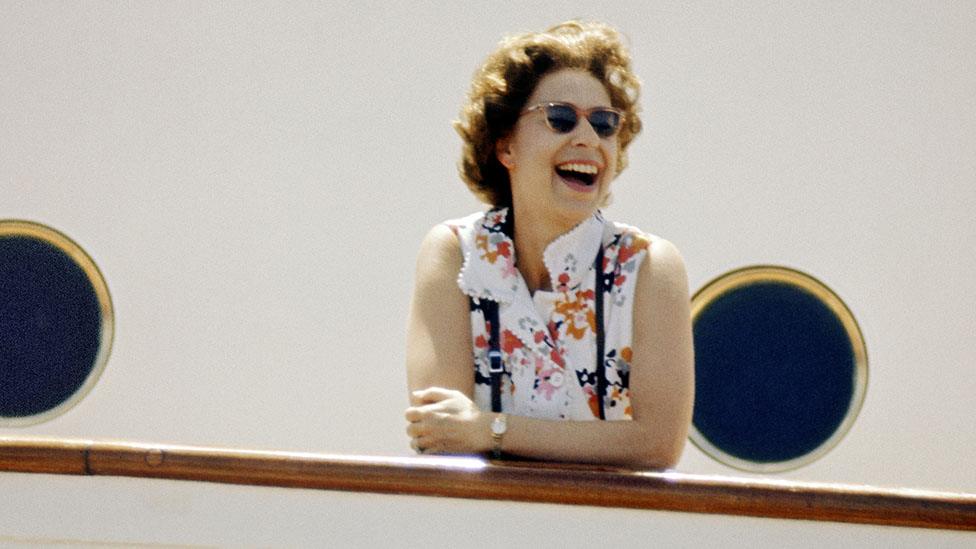Queen Elizabeth II: Swan Marker David Barber recalls monarch's interest in birds
- Published
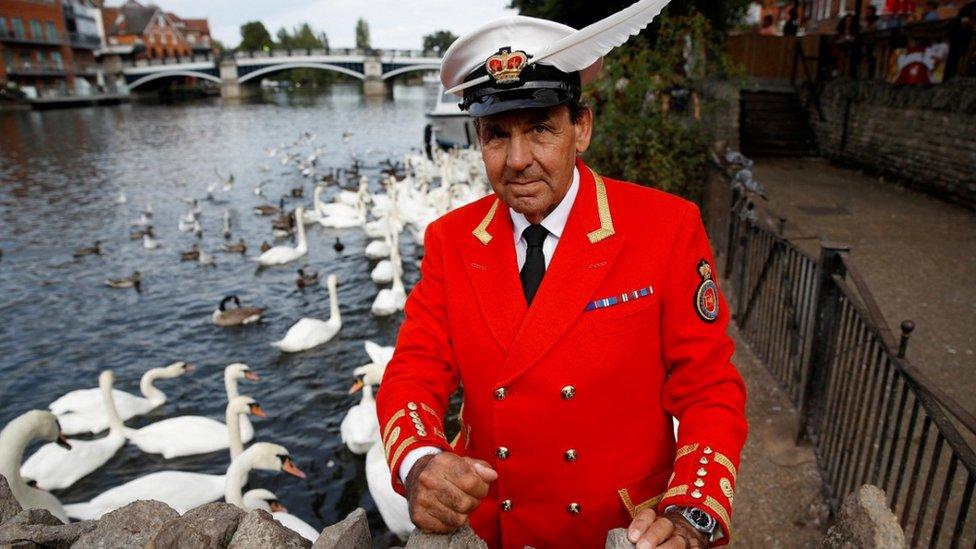
David Barber is now the King's Swan Marker
King Charles III's passion for wildlife will boost conservation efforts for the country's swans, the royal Swan Marker has said.
On the death of his mother Queen Elizabeth II, the new monarch has inherited many of the country's swans.
David Barber was the Queen's Swan Marker for 30 years and is now known as the King's Swan Marker.
He said the Queen, who died on Thursday aged 96, had taken a "grand interest" in wildlife and the swan population.
Mr Barber, who wears a scarlet coat and a swan feather in his hat for his role, was personally presented with the Royal Victorian Order by the Queen in 2014.
Each July, the Swan Marker leads a team of Swan Uppers on a five-day journey along the River Thames, from Sunbury-on-Thames through Windsor to Abingdon, counting, marking and checking the health of all unmarked swans.
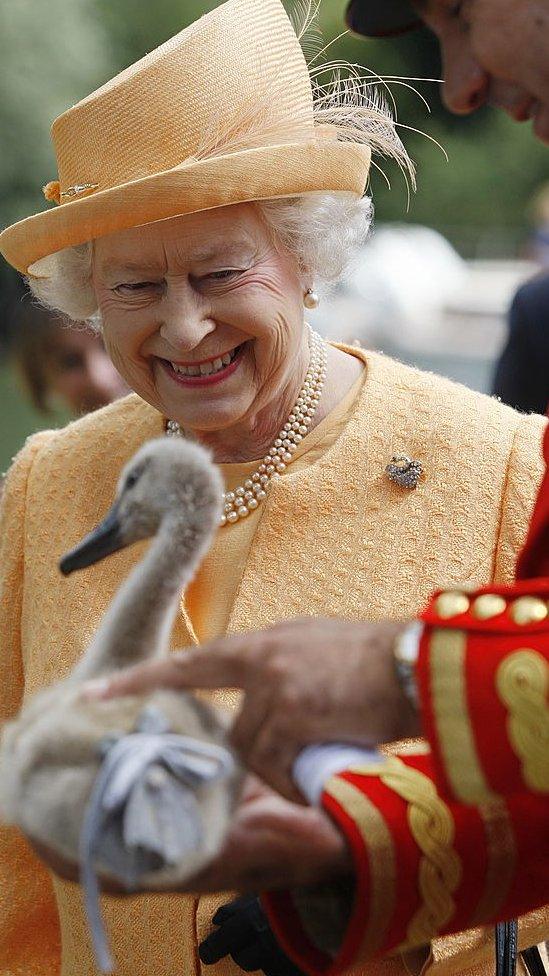
The Queen visited the annual Swan Upping in 2009
The Queen accompanied the team of Swan Uppers on their annual census in July 2009.
"She was a very, very lovely person," Mr Barber said.
"You could get on with her very well. And she took a grand interest in all wildlife but swans as well."
Royal ownership of swans dates back to medieval times when the birds were considered a delicacy.
'Royal prerogative'
"Swans then were an extremely important food source and served up at banquets and feasts, really for the wealthy," he said.
"Of course, today swans are no longer eaten, and it's all a conservation and education exercise."
He added: "Not all the swans belong to the King but if he wishes to claim them, he can, by the royal prerogative."
The monarch shares ownership of the elegant white mute swans with ancient trade associations, whose swans have their own marks.
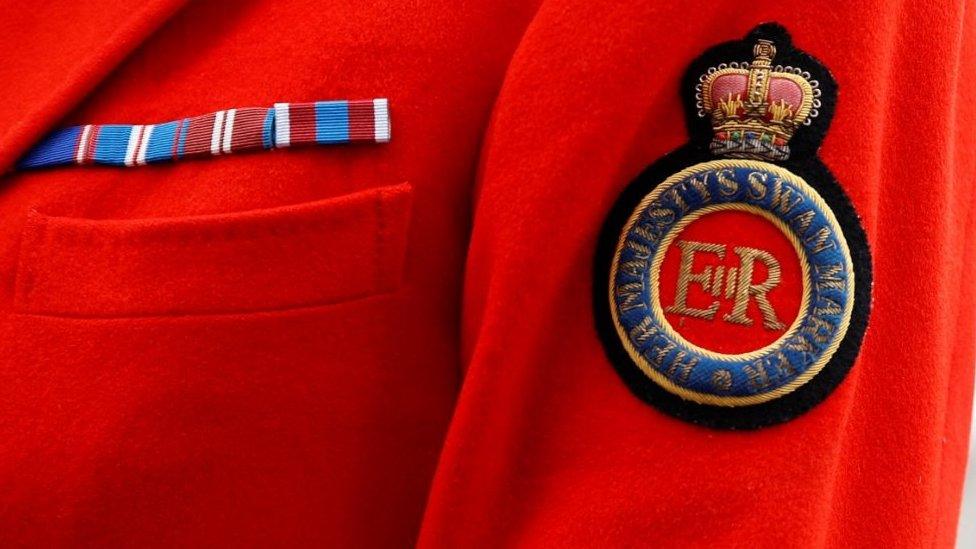
David Barber is now the King's Swan Marker
Mr Barber said he hoped King Charles would continue his mother's interest in his role.
"He's very keen on conservation and all this type of thing, which is absolutely brilliant for us as well," Mr Barber said.
"So hopefully he will take a nice interest in the swan population. That will help us do our job."


Follow BBC South on Facebook, external, Twitter, external, or Instagram, external. Send your story ideas to south.newsonline@bbc.co.uk, external.
- Published19 July 2022
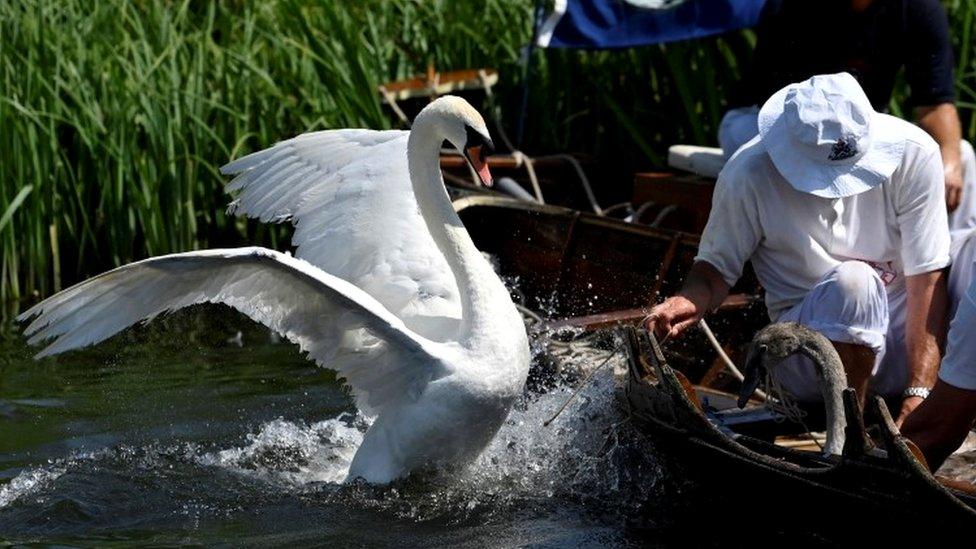
- Published1 March 2024
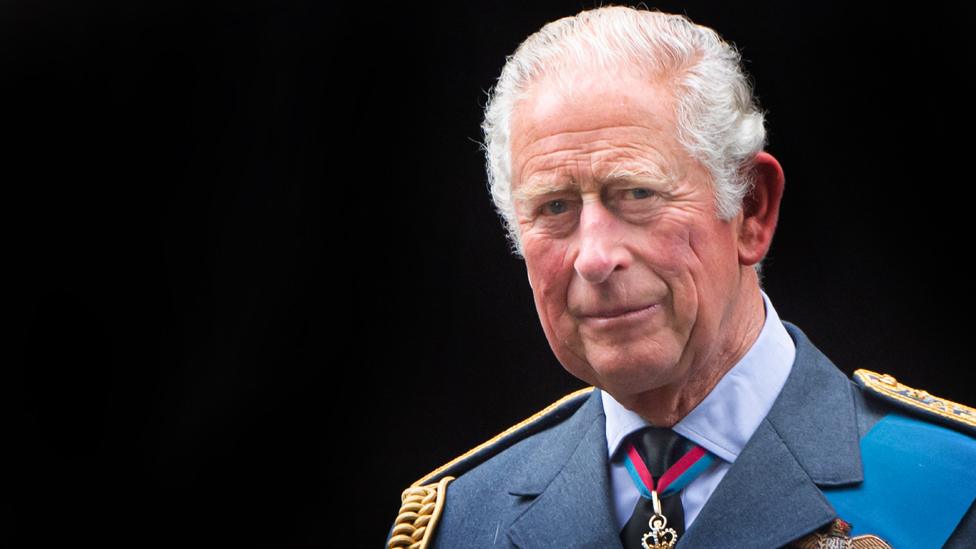
- Published9 September 2022
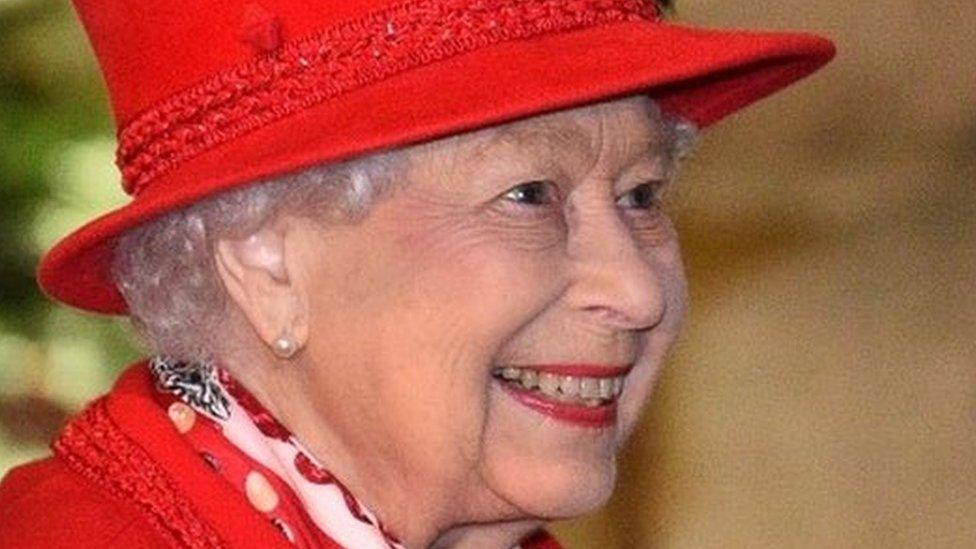
- Published8 September 2022
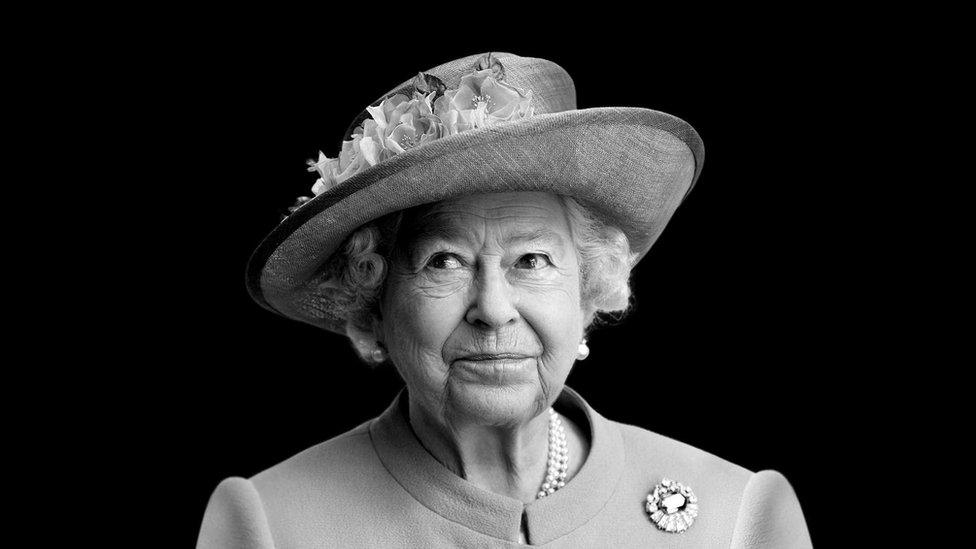
- Published8 September 2022
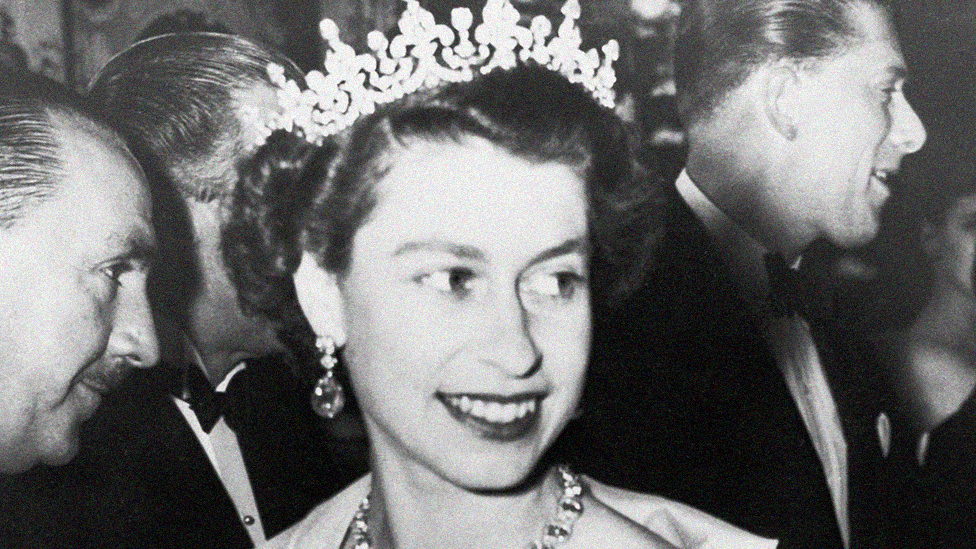
- Published8 September 2022
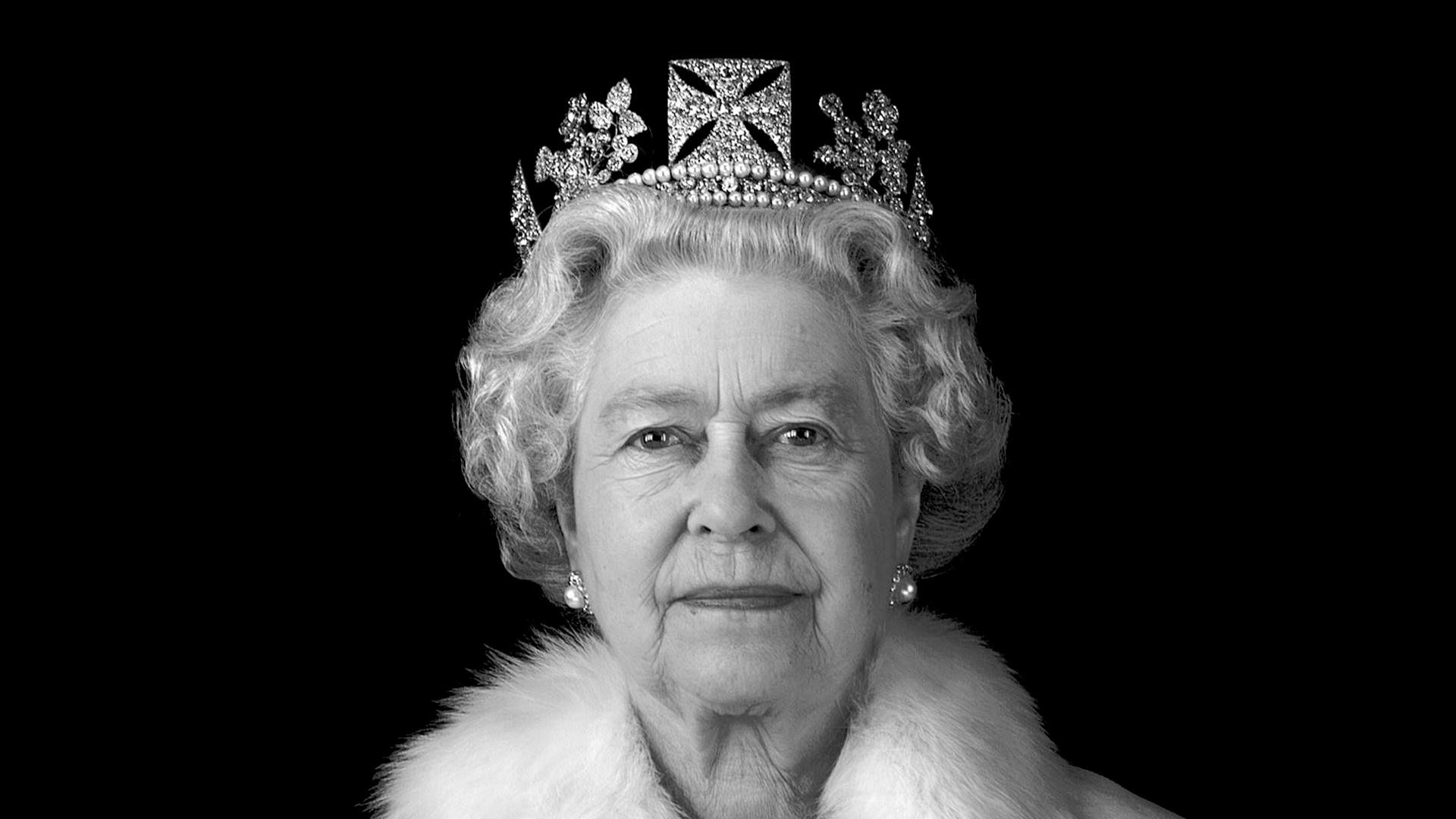
- Published8 September 2022
